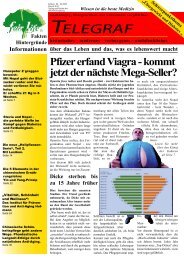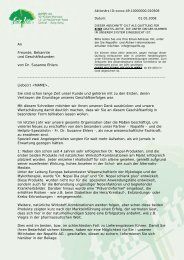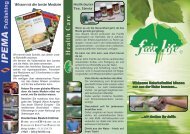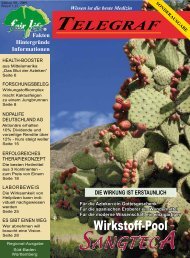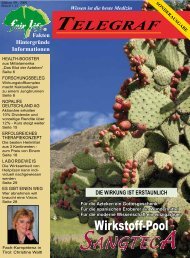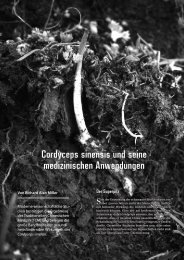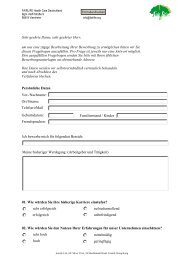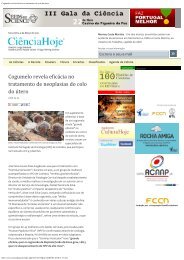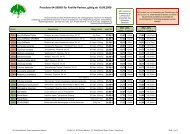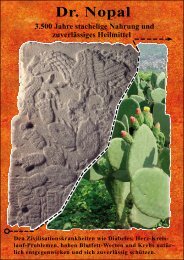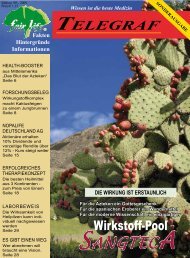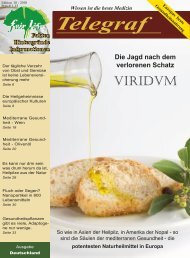Erfolgreiche ePaper selbst erstellen
Machen Sie aus Ihren PDF Publikationen ein blätterbares Flipbook mit unserer einzigartigen Google optimierten e-Paper Software.
American Medical Association (AMA) 29.06.2004<br />
Dietary Supplement with Plant Extract May Ease Hangover<br />
Individuals who took a dietary supplement containing extracts<br />
of Opuntia fi cus indica, a type of prickly pear cactus, before<br />
consuming alcohol, had reduced symptoms of alcohol hangover<br />
compared to individuals who drank but took placebo, according<br />
to an article in the June 28 issue of The Archives of Internal Medicine,<br />
one of the JAMA/Archives journals.<br />
Alcohol hangovers cause substantial economic and health consequences,<br />
the article states. The severity of alcohol hangovers<br />
may be related to infl ammation caused by impurities in alcoholic<br />
beverages and byproducts of alcohol metabolism. C-reactive<br />
protein, a protein produced by the liver, becomes elevated after<br />
injury or trauma and is thought to be involved in infl ammation<br />
and alcohol hangovers. An extract from the skin of the prickly<br />
pear fruit, Opuntia fi cus indica (OFI) has been shown to reduce<br />
infl ammation, the article states.<br />
Jeff Wiese, M.D., of Tulane University, New Orleans, and colleagues<br />
investigated the effect of OFI on the symptoms of alcohol hangover.<br />
The researchers randomly assigned 55 young adult volunteers (aged<br />
21 to 35 years) to receive either OFI or placebo fi ve hours before<br />
alcohol consumption. The study participants were given dinner<br />
(cheeseburger, fries and soda) four hours before alcohol consumption<br />
started, and were able to choose a single type of alcohol to drink<br />
for the study: vodka, gin, rum, bourbon, scotch, or tequila.<br />
Over four hours of drinking, volunteers consumed up to 1.75<br />
grams of alcohol per kilogram of body weight, a quantity that<br />
has produced hangovers in previous studies. One hour after alcohol<br />
consumption ended, the researchers measured blood alcohol<br />
levels, and the volunteers were driven home.<br />
The next morning, volunteers returned to the study site and had<br />
their vital signs measured, and blood and urine samples were<br />
Kapitel 5<br />
149



